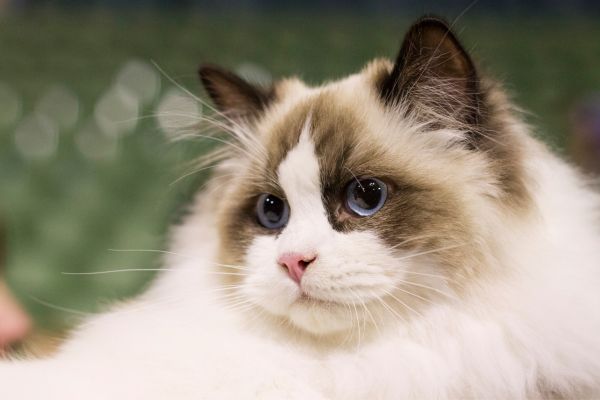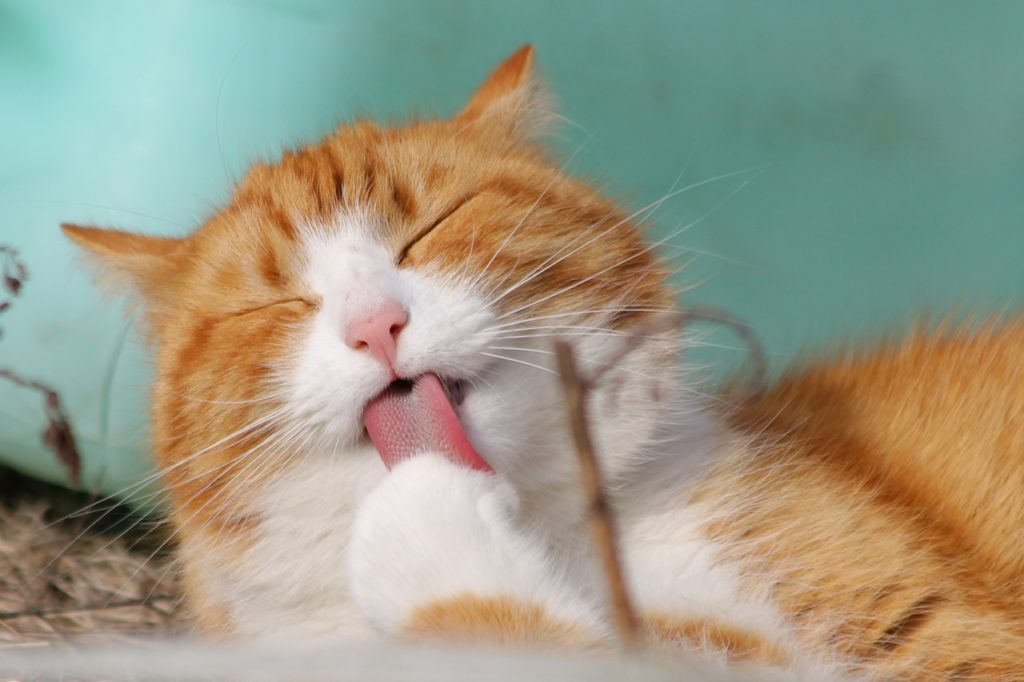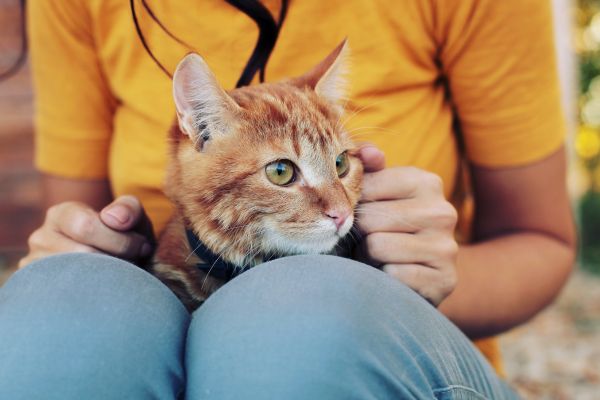We’re often asked: When is a cat considered a senior?
We like the phrase, “Senior at Seven,” because generally, that’s when cats are considered “mature.”
Since aging is a progressive continuum, many veterinarians group the following three categories and call them “senior”:
- Mature: cats aged 7-10
- Senior: cats aged 11-14 (American Association of Feline Practitioners and American Animal Hospital Association in their Feline Life Stage Guidelines).
- Geriatric: cats aged 14 and older
Of course, some cats show signs of aging earlier or later than others. Certain breeds, such as ragdoll, munchkin, Burmese, Balinese, and Siamese, tend to have longer lifespans than others. Healthy Burmese and ragdoll cats can live 25 years!
Common health conditions aging cats face
Common conditions associated with aging cats include chronic kidney disease, hyperthyroidism, periodontal and other oral disease. However, we are seeing more of the following conditions in cats than ever before:
- Arthritis
- Cognitive disorders
- High blood pressure (hypertension)
- Organ failure
- Cancer
Before your cat reaches “senior” status, begin preventive care
Because the health of an aging kitty can change rapidly, we recommend a twice yearly physical exam for all “healthy” senior cats.
The senior wellness profile at Atlantic Veterinary Hospital is consistent with the published AAFP-AAHA guidelines and includes the following tests as a baseline:
- Complete blood cell count
- Chemistry profile
- Thyroid test
- Urinalysis
- Blood pressure
Your cat’s thorough exam should also include oral health and mobility assessments.
Establishing a baseline for a healthy senior kitty allows us to follow trends throughout their golden years. Other procedures may be indicated depending on the findings of the examination.
Preventive health recommendations
We will make preventive health recommendations based on your cat’s lifestyle and health status. Our recommendations may include:
- Intestinal parasite screening, at least once a year.
- Comprehensive parasite preventive (internal and external).
- Vaccines tailored to your cat’s lifestyle, health, and environment. Decisions regarding appropriate vaccinations are dependent on your cat’s risk factors, including disease prevalence and indoor/outdoor status.
- Blood pressure screening and senior laboratory assessment.
- Senior cat nutrition.
How to spot signs of conditions common in senior cats
Knowing your cat’s normal behavior and reporting to your vet any changes in that behavior is crucial. Behavior patterns such as appetite, elimination, activity, and sleep patterns are the keys to early identification of an underlying problem.
The adage, “an ounce of prevention is worth more than a pound of cure” is far better for your cat, your peace of mind, and even your wallet.
At Atlantic Veterinary Hospital, we offer senior pet wellness plans that include yearly or senior wellness checkups, vaccinations, intestinal parasite screening, and routine wellness laboratory screenings at a significant discount to you.
Give us a call to learn more about our wellness plans or to schedule a checkup for your senior cat: 206-323-4433.
How to keep your cat’s golden years golden
In addition to being proactive about your aging kitty’s health, here are six additional things to be aware of:
1. Nutrition
A cat’s dietary needs change as they age. Senior cat food is formulated to provide the specific nutrients older cats require. These foods often contain lower calorie counts to help manage weight, as well as joint supplements and antioxidants to support overall health.
During your cat’s twice-yearly exam, we will help you determine the best diet for your senior cat.
Our online store is a convenient way to get cat food, nutritional supplements, medications and more delivered right to your door.
2. Environment
As cats age, they may experience decreased mobility or vision.
Make your home as comfortable as possible:
- Provide easy access to food, water, and litter boxes.
- Put soft bedding in warm, quiet areas.
- Consider ramps or stairs to help your kitty navigate your multi-level home or to settle into their favorite chair.
3. Exercise
While your cat may be less active, regular exercise is still important for maintaining muscle tone and flexibility.
Low-impact activities like interactive toys, puzzle feeders, and gentle play sessions can keep your cat mentally and physically stimulated.
See our article, 5 Fun (and Funny) Ways to Help Your Senior Cat Exercise
4. Grooming
Older cats may have difficulty grooming themselves, leading to matted fur and skin issues. Regular brushing can help prevent these problems.
5. Dental Care
Dental care is also essential for senior cats. Brush your cat’s teeth regularly or consider dental treats and water additives.
See our article, The Dangers of Dental Disease in Dogs and Cats, and How to Keep Your Pet’s Teeth Healthy
6. Love and Companionship
Perhaps the most important aspect of caring for a senior cat is providing love and companionship. Spend quality time with your furry friend, offering cuddles, gentle strokes, and your undivided attention.
As your cat ages, they may become more attached to you, so cherish this special bond.











